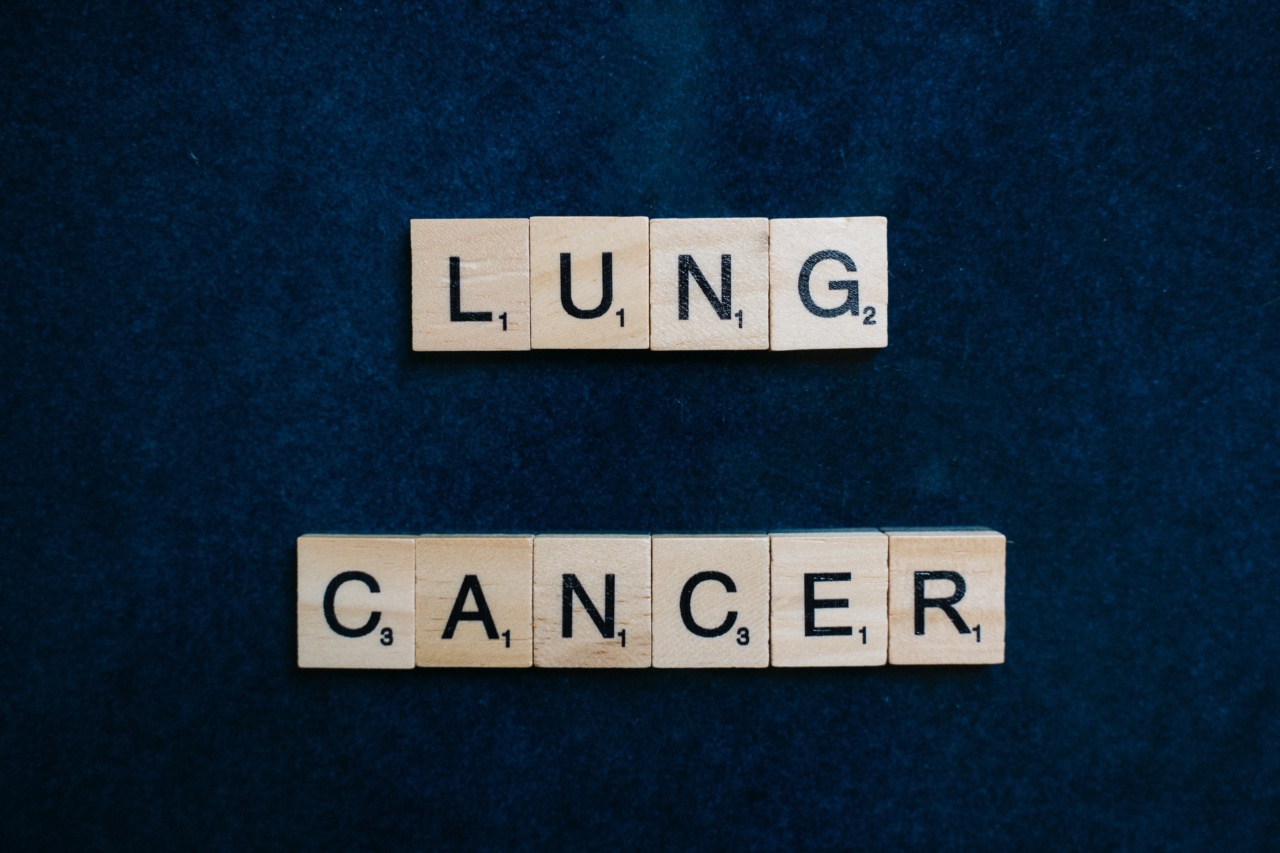If you have been experiencing constant coughing for weeks, months, or even years, it’s important to understand that this could be a symptom of a more serious underlying condition, such as lung cancer.
While coughing is a common symptom of many respiratory illnesses, it’s also one of the earliest and most consistent indicators of lung cancer. Unfortunately, however, many people ignore this symptom or simply dismiss it as a sign of a minor respiratory infection.
So, if you’re experiencing persistent coughing, it’s important to seek medical attention and find out what’s causing it. In this article, we’ll explore the various symptoms and risk factors of lung cancer, how to spot the signs of the disease, and what you need to know about this deadly illness.
What is Lung Cancer?
Lung cancer is a type of cancer that starts in the lungs and can spread to other parts of the body. It’s one of the most common forms of cancer and is also one of the deadliest.
The disease usually begins in the cells that line the airways and can spread rapidly to other parts of the lungs, as well as to the lymph nodes and other organs.
Symptoms of Lung Cancer
The symptoms of lung cancer can vary depending on the stage of the disease and the location of the tumor. However, some of the most common symptoms include:.
- Constant coughing
- Chest pain
- Shortness of breath
- Wheezing
- Coughing up blood
- Unexplained weight loss
- Fatigue
- Loss of appetite
- Hoarseness
If you experience any of these symptoms, it’s important to consult with a doctor as soon as possible. While these symptoms can be caused by other conditions such as respiratory infections, they can also be signs of lung cancer.
Risk Factors for Lung Cancer
Lung cancer is caused by a variety of risk factors including:.
- Smoking
- Exposure to second-hand smoke
- Exposure to chemicals such as asbestos and radon
- Family history of lung cancer
- Air pollution
- Age
Of these risk factors, smoking is the most significant. In fact, smokers are at least 15 times more likely to develop lung cancer than non-smokers.
The risk of developing lung cancer also increases with the number of cigarettes smoked per day and the length of time that an individual has been smoking.
Diagnosing Lung Cancer
Diagnosing lung cancer typically involves a combination of imaging tests, biopsies, and laboratory tests. Some of the most common tests used to diagnose lung cancer include:.
- Chest X-rays
- Computed tomography (CT) scans
- PET scans
- Sputum cytology
- Biopsy
If you have been experiencing consistent coughing for a prolonged period of time, your doctor may recommend one or more of these tests to determine the cause of your symptoms.
Catching lung cancer early can greatly increase the chances of successful treatment and recovery.
Treating Lung Cancer
The treatment options for lung cancer depend on the stage of the disease and the individual’s overall health. Some common treatments include:.
- Surgery
- Radiation therapy
- Chemotherapy
- Targeted drug therapy
- Immunotherapy
Early diagnosis followed by prompt treatment provides the best opportunity for recovery from lung cancer. However, if the disease is not detected until later stages, treatment options become more limited and the prognosis becomes less favorable.
Preventing Lung Cancer
The best way to prevent lung cancer is to eliminate the risk factors that are within your control. If you smoke, quitting smoking is the most effective way to reduce your risk of developing lung cancer.
Additionally, avoiding exposure to secondhand smoke and limiting your exposure to chemicals such as asbestos and radon can also help reduce your risk. Eating a healthy diet, exercising regularly, and maintaining a healthy weight can also help reduce the risk of developing cancer.
Conclusion
Constant coughing can be a symptom of a variety of respiratory illnesses, but it can also be a sign of lung cancer.
If you’ve been experiencing persistent coughing for any length of time, it’s important to seek medical attention to determine the cause of your symptoms. Lung cancer is a serious and potentially deadly disease, but early detection and prompt treatment can greatly increase the chances of successful recovery.




























